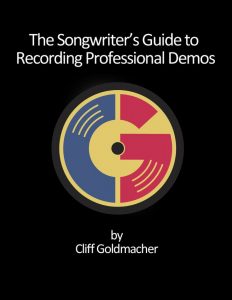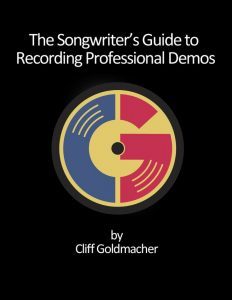Early on in my songwriting career, I considered it a minor miracle that I could write a song in the first place. However, once I got a little more used to performing that particular magic trick, it became necessary to start to refine my process a bit further. In other words, it was no longer enough just to have created a song. Now I had to go back and tweak, edit, fix and otherwise polish my songs until I was confident I’d exhausted every option to improve them. In the interest of helping you do your own song critiques, I’ve put together a list of ten things for you to examine in order to make your songs both lyrically and melodically stronger.
The Lyric
1. Do you have a strong opening line?
The opening line of your song is the first and best chance to engage your listener in the story you’re about to tell. Strong opening lines explain the where, what and who of your story and will eventually lead to why the story is being told. Make sure your opening line is designed to start your listener down the road to getting involved in the story you’re telling.
2. Are you using concrete imagery?
One of the best ways to put a listener immediately into the middle of your song’s story is to use strong imagery. I’ve also heard this imagery called furniture. These images are the details in a lyric that give your listener things to remember and connect with. Generally speaking, imagery is reserved for the verses where the meat of your story is being told. Choruses are designed to state the main point or theme of your song. Another way to think about imagery is to “show ‘em, not tell ‘em.” What that means is that it’s less effective to say, for example, she was a seductive woman but she was bad news than it is to describe her as “a black heart in a green dress.”
. . . . . . . . . .
The Melody
7. Is your verse melody interesting?
Given that the melody of your song is one of the first things people hear and pay attention to (sorry lyricists but the words come waaaay later), you’ll want to be sure that your verse melody is catchy and unique. This doesn’t mean your melody should be bizarre or uncomfortable but, rather, that it should be distinctive and memorable. Songwriting Critiques
. . . . . . . . . .
Conclusion
Critiquing your own songs is never fun and is often a time-consuming and somewhat frustrating experience. That being said, it’s essential that you hold your songs up to the highest standard if you’re hoping to have a better chance at commercial success. I do want to remind you, however, that your first – and most important – job is to write the song. Focusing on critiquing your song too early in the process might prevent you from writing something heartfelt and spontaneous. In my experience, it’s always easier to get it all out first and invite your “editor” to the party once you’re done.
Good luck!
By Cliff Goldmacher
Article shortened – Read the whole, informative article here:
http://www.cliffgoldmacher.com/ten-foolproof-ways-to-do-your-own-song-critiques/


